 W
WAmanda Christina Elizabeth Aldridge, also known as Amanda Ira Aldridge, was a British opera singer, teacher and composer, under the pseudonym of Montague Ring. She was the daughter of African-American Shakespearian actor Ira Aldridge.
 W
WClarence Barlow is a composer of classical and electroacoustic works.
 W
WDavid Vickerman Bedford was an English composer and musician. He wrote and played both popular and classical music. He was the brother of the conductor Steuart Bedford and the grandson of the composer, painter and author Herbert Bedford and the composer Liza Lehmann.
 W
WSir William Sterndale Bennett was an English composer, pianist, conductor and music educator. At the age of ten Bennett was admitted to the London Royal Academy of Music (RAM), where he remained for ten years. By the age of twenty, he had begun to make a reputation as a concert pianist, and his compositions received high praise. Among those impressed by Bennett was the German composer Felix Mendelssohn, who invited him to Leipzig. There Bennett became friendly with Robert Schumann, who shared Mendelssohn's admiration for his compositions. Bennett spent three winters composing and performing in Leipzig.
 W
WMary Berry, CBE was a canoness regular, noted choral conductor and musicologist. She was an authority on the performance of Gregorian chant, founding the Schola Gregoriana of Cambridge to revive this ancient style of music.
 W
WHilda Bor was a British pianist of Russian-Jewish descent.
 W
WFrank Bridge was an English composer, violist and conductor.
 W
WOlivia Francisca Buckley née Dussek (1799–1847) was an English harpist, organist and composer. She was born in London, the daughter of Czech composer Jan Ladislav Dussek and Scottish composer Sophia Corri. Dussek left his wife, and Olivia was taught harp and piano by her mother, making her debut at the age of eight at the Argyle Rooms. She married Richard William Buckley and had ten children.
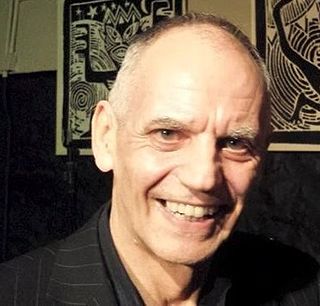 W
WRichard James Burgess is an English musician, singer, songwriter, record producer, composer, author, manager, marketer and inventor.
 W
WFrederick Corder was an English composer and music teacher.
 W
WGary Crosby is a British jazz double bassist, composer, music arranger, and educator. He was a founder member of the celebrated group the Jazz Warriors in the 1980s and has worked with many top international artists.
 W
WReverend John Curwen (1816–1880) was an English Congregationalist minister and diffuser of the Tonic sol-fa system of music education created by Sarah Ann Glover. He was educated at Wymondley College in Hertfordshire, then Coward College as that institution became known when it moved to London, and finally University College London.
 W
WEmily Rosa Daymond was an English musician.
 W
WHarry Lancelot "Lance" Dossor was a British-born classical music concert pianist and teacher who emigrated to Australia in May 1953.
 W
WHerbert J. Ellis was a banjo player, a mandolinist, guitar player and a composer. Music historian Philip J. Bone called him "without question the most fertile English composer and arranger for mandolin and guitar." He was the author of a banjo method, a guitar method, and a Tutor for Mandolin (1892), which he wrote while still in school.
 W
WPaul Stephen Farmer is a retired British educationalist who developed the use of pop music in school music education in the 1970s, and is reputed to be the first to devise a public examination in the UK exclusively in pop music. He wrote several music education books and became a London comprehensive school head teacher at the age of 33.
 W
WArthur Foxton Ferguson an early-20th-century English baritone, lecturer, and German translator who founded The Folk-Song Quartet.
 W
WSarah Ann Glover was an English music educator who invented the Norwich sol-fa system.
 W
WGuthrie Govan is an English guitarist and guitar teacher, known for his work with the bands The Aristocrats, Asia, GPS, The Young Punx and The Fellowship, as well as his solo project Erotic Cakes. More recently, he has collaborated with Steven Wilson and Hans Zimmer. He is a noted guitar teacher, working with the UK magazine Guitar Techniques, Guildford's Academy of Contemporary Music, Lick Library, and formerly the Brighton Institute of Modern Music. Govan was named "Guitarist of the Year" by Guitarist magazine in 1993.
 W
WDame Julia Myra Hess, was an English pianist, best known for her performances of the works of Bach, Mozart, Beethoven and Schumann.
 W
WAlfred Holmes was an English violinist, composer, and music educator. His compositional output includes orchestral works, chamber music, several works for solo violin, and some choral works.
 W
WHenry Holmes was a British violinist, composer, and music educator. His compositional output includes a violin concerto, several works for solo violin, four symphonies, a concert overture, two sacred cantatas for solo voices, chorus, and orchestra, and other chamber and choral works.
 W
WAlex Hutchings is a professional guitarist based in Bristol, England. He especially plays and teaches jazz fusion, rock and r'n'b.
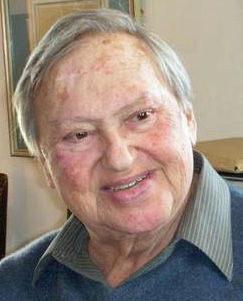 W
WMartin Johannes Sebastian Isepp was an Austrian‐born British pianist, harpsichordist, conductor and teacher. He had an international career, and worked with leading singers for several decades. Among those with whom he performed were Janet Baker, Hugues Cuénod, Hans Hotter and Elisabeth Schwarzkopf. For more than forty years he was associated with Glyndebourne Festival Opera, and he held posts in opera houses and music academies in Britain, continental Europe and North America.
 W
WEthel Liggins was a British pianist, composer, conductor and music educator.
 W
WMiriam Licette was an English operatic soprano whose career spanned 35 years, from the mid-1910s to after World War II. She was also a singing teacher, and created the Miriam Licette Scholarship.
 W
WWilliam Lovelock was an English classical composer and pedagogue who spent many years in Australia. He was the first Director of the Queensland Conservatorium of Music in Brisbane, and later became the chief music critic for The Courier-Mail newspaper while developing an independent career as a composer.
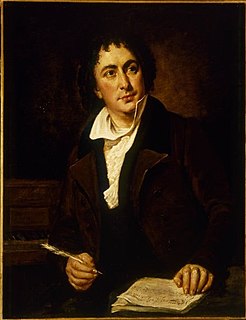 W
WIsaac Nathan was an English composer, musicologist, journalist and self-publicist, who topped off an eventful career by becoming the "father of Australian music".
 W
WEthel Charlotte Pedley was an English-Australian author and musician.
 W
WPhilip Cipriani Hambly Potter was an English musician. He was a composer, pianist, conductor and teacher. After an early career as a performer and composer, he was a teacher in the Royal Academy of Music in London and was its principal from 1832 to 1859.
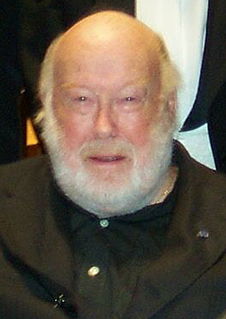 W
WBrian Priestman was a British conductor and music educator.
 W
WAchille Rivarde was an American-born British violinist and teacher, who worked mainly in Europe and London.
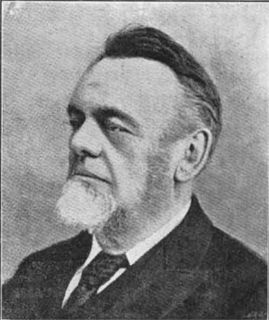 W
WEleazar Roberts, sometimes also spelt Eleazer, was a Welsh musician, translator, writer and amateur astronomer. Roberts's family moved to Liverpool in England while he was an infant, but despite this he retained a strong link to his country of birth and was a fluent Welsh speaker. He wrote for several Welsh journals and travelled Wales setting up music classes. He is most notable for pioneering the tonic sol-fa method of sight-singing in Wales, which in turn led to the strengthening of the practice of congregational singing.
 W
WFelix Adrian Norman Salmond was an English cellist and cello teacher who achieved success in the UK and the US.
 W
WAnn(e) Childe Seguin (1811–1888) was a British and American opera singer who was part of the Seguin Troupe in America. Her best known role was as the lead in The Bohemian Girl.
 W
WPhyllis Sellick, OBE was a British pianist and teacher, best known for her partnership with her pianist husband Cyril Smith.
 W
WCedric Sharpe, ARCM, Hon RAM was a British cellist, composer and music professor of the early to mid-20th century. He studied cello at the Royal College of Music later becoming professor of cello at the Royal Academy of Music – the start of a teaching career that was to span almost four decades before he retired in 1966 at the age of 75. During the inter-War years he became a prominent player of both chamber and orchestral music; his repertoire included both British and European contemporary music. He recorded for HMV and was broadcast by the BBC. He composed a number of original pieces mostly for solo cello with piano accompaniment.
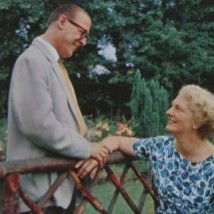 W
WCyril James Smith OBE was a virtuoso concert pianist of the 1930s, 1940s and 1950s, and a piano teacher.
 W
WWilliam Henry Squire, ARCM was a British cellist, composer and music professor of the late 19th and early 20th centuries. He studied cello at the Royal College of Music, and became professor of cello at the Royal College and Guildhall schools of music. He was principal cello in several major London orchestras and helped to popularize the cello as a solo instrument in the early years of the 20th century by giving public concerts throughout the British Isles and making recordings; he became well known for his performances of the Elgar and Saint-Saëns cello concertos. In 1898 the French composer Gabriel Fauré dedicated his cello piece Sicilienne to Squire. Squire's own compositions were written mainly for the cello; these included several solo pieces of light character and a cello concerto; he also wrote the music for a number of songs.
 W
WPatric Standford was an award-winning English composer, supporter of composers’ rights, educationalist and author.
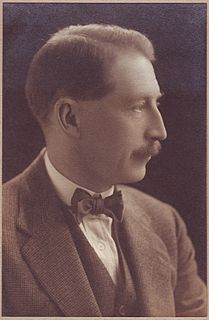 W
WGerald Harman Walenn was a British violinist and composer of classical music.
 W
WErnest Walker was an Indian-born English composer, pianist, organist, teacher and writer on music.